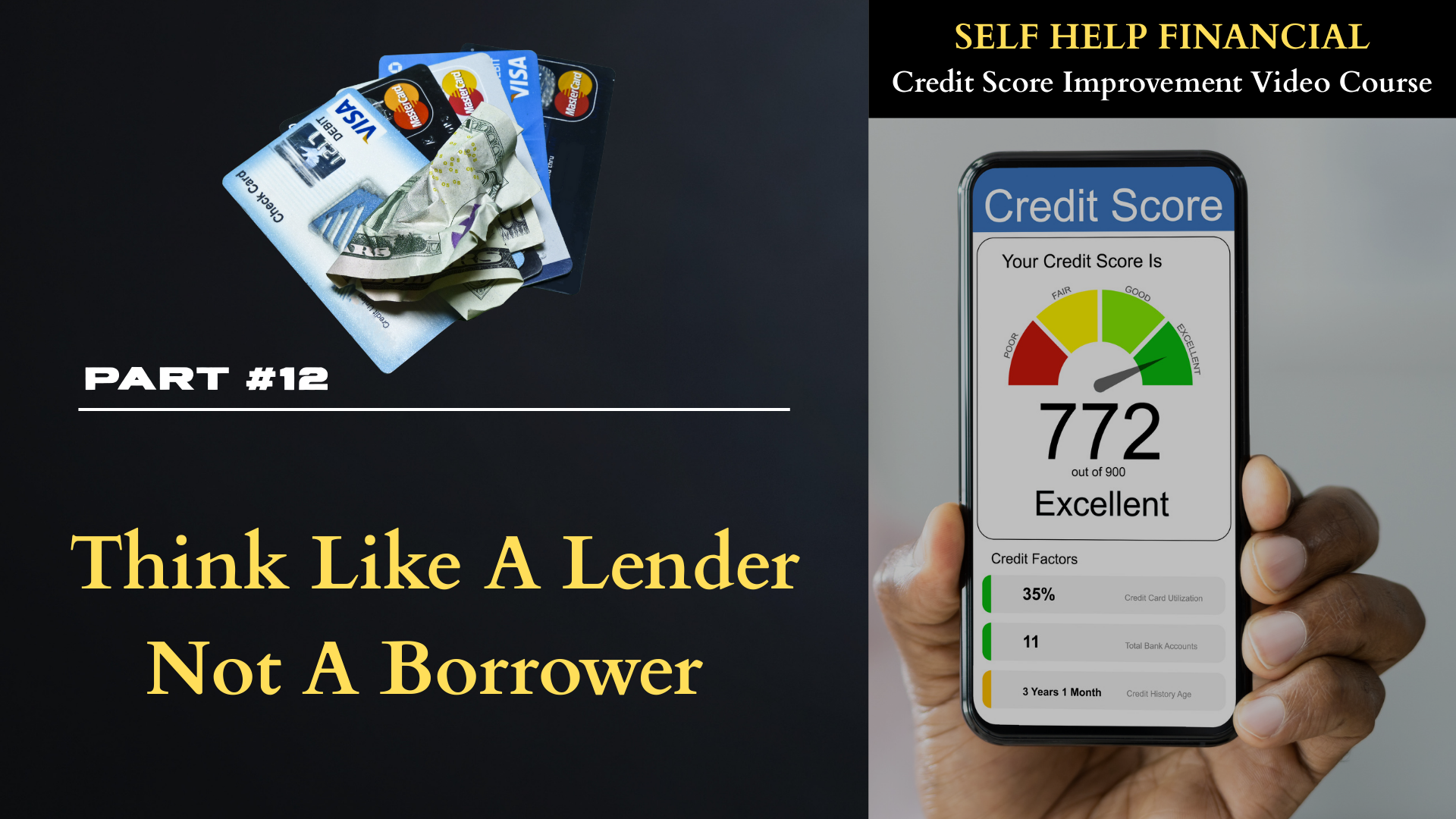Dealing With Debt
Debt is a major factor in your credit score. If you have too much of it (or none at all) or if you have trouble repaying your debts on time, your credit score will plummet. Keeping your debt reasonable and paid, on the other hand, will do more than almost anything else to improve your credit score. Here are a few tips that can ensure that your debts actually help you boost your credit score:
Consolidating your loans means that you take out one large loan to repay all your creditors so that you only have one large loan to repay. While the overall amount of the loan does not change - if you owe $20,000 to five different companies, you will still owe $20,000 but to only one lender - but the interest rates and monthly payments are usually smaller, and this can help meet your debt obligations much easier.
Debt consolidation can be an especially good idea if you have lots of high-interest debt and lots of bills that are hard to keep track of. One smaller monthly payment will be easier to remember and will help make bill time less painful.
Paying down your debts by putting down more than the minimum required monthly payment can help you pay down your debts faster and so can boost your credit score. Paying down more than you need to also shows lenders that you are in good financial shape and conscientious about your debts - two qualities that definitely make you an attractive credit risk to lenders.
In fact, for larger purchases, some debtors take out piggyback loans, most often for a mortgage. They borrow money for a down payment, so that they can get a better rate deal on the larger second loan they take out to pay for the purchase.
Do your math before making a big purchase - you may find that a larger down payment - even if you must borrow to get it - can help your credit by making your payments more affordable and by ensuring that you don't overextend your credit.
Online loan calculators are free to use and can help you figure out how to make your debts more affordable. There are online loan calculators for auto loans, home loans, and personal loans. If you are going to be getting a new loan, these calculators can be a powerful resource.
In fact, several states are investigating payday loans for possible illegal activity stemming from usury laws. If you cannot afford your bills, one month, you are much better off trying to arrange an alternate schedule of payment with the companies you owe money to rather than risking your credit rating through payday loans. Payday loans may be fine in a true emergency, but the payday loans cycle gets very unaffordable very fast and can ruin your credit rating.
This method will also mean that you will always be looking for new credit and new debt to pay off your increasing debts. It makes more sense to get a second job or arrange for a new payment schedule.
Paying off your debts with another debt may help you in the short run - you will not have a late payment on your credit record - but in the long run the larger debt load will make maintaining good credit increasingly difficult. The only exception to this rule is debt consolidation, in which all your bills are paid by one lender, who then becomes the only creditor you owe money to.
You don't want to do this too often - it prevents you from developing long-term relationships with lenders and results in inquiries on your credit report - but if you have good reasons to refinance, it can actually help you repay your debts. For example, if you can get more reasonable monthly bills that you will actually be able to repay, refinancing can help prevent all those non-payment credit dings that come from not being able to pay your bills. Making your payments more affordable can save you money and can save your credit score.
In the short term, refinancing can push your credit score down, as you will acquire inquiries on your credit report as you look for a new lender and as you close old accounts and open new accounts. In the long term, though, refinancing can be a good way of boosting your credit score. If you are now missing or delaying payments because you cannot afford monthly bills, for example, refinancing a loan or two can be a good way to get back on track and can get you repairing your credit score again!
Consolidate Your Loans!
Having lots of loans and debt is one of the biggest reasons leading to poor credit ratings. The larger your debts, the worse your credit rating, and the more likely you will find yourself with large monthly bills that are difficult to repay.Consolidating your loans means that you take out one large loan to repay all your creditors so that you only have one large loan to repay. While the overall amount of the loan does not change - if you owe $20,000 to five different companies, you will still owe $20,000 but to only one lender - but the interest rates and monthly payments are usually smaller, and this can help meet your debt obligations much easier.
Debt consolidation can be an especially good idea if you have lots of high-interest debt and lots of bills that are hard to keep track of. One smaller monthly payment will be easier to remember and will help make bill time less painful.
Make Larger Than Minimal Payments!
If you only pay down the minimum amount on each of your loans, it will take you a long, long time to pay down your loans. This is because most lenders only require that you pay down slightly more than the interest amount on your debt each month. Even a debt of a few hundred dollars could take several years to repay this way.Paying down your debts by putting down more than the minimum required monthly payment can help you pay down your debts faster and so can boost your credit score. Paying down more than you need to also shows lenders that you are in good financial shape and conscientious about your debts - two qualities that definitely make you an attractive credit risk to lenders.
If You Are Taking Out A New Loan, Consider Putting Down A Larger Down Payment To Take Out A Smaller Loan!
Doing all you can to take out a smaller loan - by putting down a larger down payment or buying a less expensive car or home (if that is what the loan is for), for example - can help ensure that you don't overextend your credit and can help ensure that your monthly payments on the debt will be reasonable and affordable to you.In fact, for larger purchases, some debtors take out piggyback loans, most often for a mortgage. They borrow money for a down payment, so that they can get a better rate deal on the larger second loan they take out to pay for the purchase.
Do your math before making a big purchase - you may find that a larger down payment - even if you must borrow to get it - can help your credit by making your payments more affordable and by ensuring that you don't overextend your credit.
Use Loan Calculators To Estimate Your Payments And Keep Your Credit Rating In Good Shape!
Online loan calculators are a useful tool that can help you determine how much of an interest rate you should pay, how much in monthly payments you can afford, and how much your loan will cost you in interest over the long term.Online loan calculators are free to use and can help you figure out how to make your debts more affordable. There are online loan calculators for auto loans, home loans, and personal loans. If you are going to be getting a new loan, these calculators can be a powerful resource.
Avoid Payday Loans!
Payday loans are also called "cash advance loans" and they are small and short-term loans that carry very high interest rate. Some companies have even begun to advertise them as loans to help you repair your credit, but this is very misleading. Some companies suggest that these loans can help you pay off your bills and so establish good credit, but if you cannot afford to pay your payday loans on time, you have to "roll-over" or extend the loan - often at huge expense and interest. Many people get into a payday loans cycle, whereby much of their monthly paycheck goes towards paying off their ever-growing payday loans.In fact, several states are investigating payday loans for possible illegal activity stemming from usury laws. If you cannot afford your bills, one month, you are much better off trying to arrange an alternate schedule of payment with the companies you owe money to rather than risking your credit rating through payday loans. Payday loans may be fine in a true emergency, but the payday loans cycle gets very unaffordable very fast and can ruin your credit rating.
Do Not Use One Debt To Repay Another!
This results in accumulating interest and so increasingly unpayable bills. If you use one credit card to pay off another, for example, you are paying interest on interest, and paying off the new credit card bill will be more difficult.This method will also mean that you will always be looking for new credit and new debt to pay off your increasing debts. It makes more sense to get a second job or arrange for a new payment schedule.
Paying off your debts with another debt may help you in the short run - you will not have a late payment on your credit record - but in the long run the larger debt load will make maintaining good credit increasingly difficult. The only exception to this rule is debt consolidation, in which all your bills are paid by one lender, who then becomes the only creditor you owe money to.
Refinance Your Loans!
If you got a poor deal on a loan - especially a major loan such as a car or home loan - or if your credit rating has improved since you got your loan, you may want to consider refinancing. Refinancing means that you take your loan to another lender to enjoy better terms or rates.You don't want to do this too often - it prevents you from developing long-term relationships with lenders and results in inquiries on your credit report - but if you have good reasons to refinance, it can actually help you repay your debts. For example, if you can get more reasonable monthly bills that you will actually be able to repay, refinancing can help prevent all those non-payment credit dings that come from not being able to pay your bills. Making your payments more affordable can save you money and can save your credit score.
In the short term, refinancing can push your credit score down, as you will acquire inquiries on your credit report as you look for a new lender and as you close old accounts and open new accounts. In the long term, though, refinancing can be a good way of boosting your credit score. If you are now missing or delaying payments because you cannot afford monthly bills, for example, refinancing a loan or two can be a good way to get back on track and can get you repairing your credit score again!
Click On An Image Below To Watch More Free Videos Now!
DISCLAIMER:
The information provided in these videos are for educational purposes only. Always consult with a professional before making significant financial decisions. We do not guarantee any specific credit score improvements and you are solely responsible for your financial decisions, and any outcomes that result from the application of strategies found in these videos!
The information provided in these videos are for educational purposes only. Always consult with a professional before making significant financial decisions. We do not guarantee any specific credit score improvements and you are solely responsible for your financial decisions, and any outcomes that result from the application of strategies found in these videos!
© 2026 Self Help Financial All Rights Reserved











